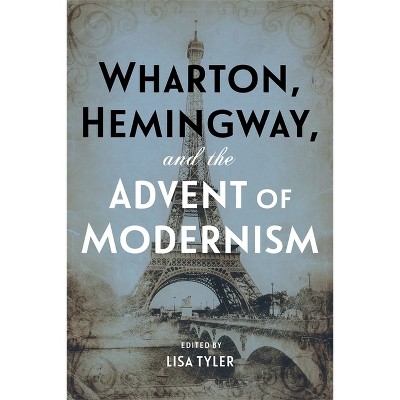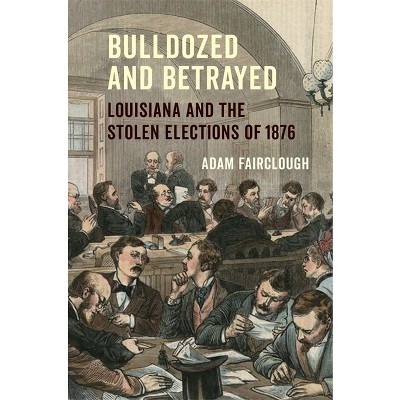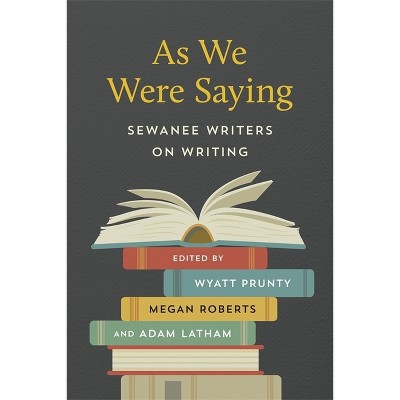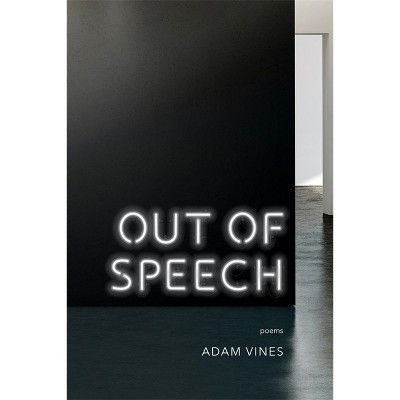$45.00 when purchased online
Target Online store #3991
About this item
Highlights
- In Modernism and Subjectivity: How Modernist Fiction Invented the Postmodern Subject, Adam Meehan argues that theories of subjectivity coming out of psychoanalytic, poststructuralist, and adjacent late--twentieth--century intellectual traditions had already been articulated in modernist fiction before 1945.
- About the Author: Adam Meehan is associate professor of English at Palomar College in San Marcos, California.
- 214 Pages
- Literary Criticism, Modern
Description
About the Book
""Modernism and Subjectivity: How Modernist Fiction Invented the Postmodern Subject" argues that theories of subjectivity coming out of psychoanalytic, poststructuralist, and adjacent late-twentieth-century intellectual traditions had already been articulated in modernist fiction before 1945. Adam Meehan finds versions of this postmodern subject embodied in works by authors who intently undermine attempts to stabilize conceptions of identity and who draw attention to the role of language in shaping conceptions of the self. Focusing on the philosophical registers of literary texts, Meehan traces the development of modernist attitudes toward subjectivity, particularly in relation to issues of ideology, spatiality, and violence in a selection of works published between 1904 and 1941. Detailed close readings of novels by Samuel Beckett, Joseph Conrad, F. Scott Fitzgerald, Aldous Huxley, James Joyce, Nathanael West, and Virginia Woolf establish that subjectivity in the modernist novel is conceptualized as an ideological and linguistic construction which reverberates across understandings of consciousness, race, place, and identity. By reconsidering the movement's function and scope, Modernism and Subjectivity charts how profoundly modernist literature shaped the intellectual climate of the twentieth century"--Book Synopsis
In Modernism and Subjectivity: How Modernist Fiction Invented the Postmodern Subject, Adam Meehan argues that theories of subjectivity coming out of psychoanalytic, poststructuralist, and adjacent late--twentieth--century intellectual traditions had already been articulated in modernist fiction before 1945. Offering a bold new genealogy for literary modernism, Meehan finds versions of a postmodern subject embodied in works by authors who intently undermine attempts to stabilize conceptions of identity and who draw attention to the role of language in shaping conceptions of the self.
Focusing on the philosophical registers of literary texts, Meehan traces the development of modernist attitudes toward subjectivity, particularly in relation to issues of ideology, spatiality, and violence. His analysis explores a selection of works published between 1904 and 1941, beginning with Joseph Conrad's prescient portrait of the subject interpolated by ideology and culminating with Samuel Beckett's categorical disavowal of the subjective "I." Additional close readings of novels by F. Scott Fitzgerald, Aldous Huxley, James Joyce, Nathanael West, and Virginia Woolf establish that modernist texts conceptualize subjectivity as an ideological and linguistic construction that reverberates across understandings of consciousness, race, place, and identity. By reconsidering the movement's function and scope, Modernism and Subjectivity charts how profoundly modernist literature shaped the intellectual climate of the twentieth century.Review Quotes
Adam Meehan's Modernism and Subjectivity takes up perhaps the key theoretical problem of twentieth-century theory and traces its roots in modernist prose. Developing the increasingly accepted notion that literature thinks (see Nancy Armstrong, and Judith Butler)--that novels do theory--Meehan opens up the conversation so that we may begin at last to consider the intellectual contributions of modernist novels as vital precursors to late-century philosophical extensions of their elemental concerns. It's an important book that will make a timely contribution to modernist studies.--Stephen Ross, editor of Modernism and Theory: A Critical Debate
Meehan is right. The link between modernism and postmodernism is not one of historical succession but of ideological anticipation, both resting on the creation of a new mode of subjectivity. This wonderfully lucid account expands Lacanian approaches to literature while demonstrating the resilient impact of modernism on today's cultural sphere.--Jean-Michel Rabaté, editor of A Handbook of Modernism Studies
About the Author
Adam Meehan is associate professor of English at Palomar College in San Marcos, California.Dimensions (Overall): 8.5 Inches (H) x 5.5 Inches (W) x .63 Inches (D)
Weight: .93 Pounds
Suggested Age: 22 Years and Up
Sub-Genre: Modern
Genre: Literary Criticism
Number of Pages: 214
Publisher: LSU Press
Theme: 20th Century
Format: Hardcover
Author: Adam Meehan
Language: English
Street Date: June 3, 2020
TCIN: 1002951939
UPC: 9780807172186
Item Number (DPCI): 247-20-2556
Origin: Made in the USA or Imported
If the item details aren’t accurate or complete, we want to know about it.
Shipping details
Estimated ship dimensions: 0.63 inches length x 5.5 inches width x 8.5 inches height
Estimated ship weight: 0.93 pounds
We regret that this item cannot be shipped to PO Boxes.
This item cannot be shipped to the following locations: American Samoa (see also separate entry under AS), Guam (see also separate entry under GU), Northern Mariana Islands, Puerto Rico (see also separate entry under PR), United States Minor Outlying Islands, Virgin Islands, U.S., APO/FPO
Return details
This item can be returned to any Target store or Target.com.
This item must be returned within 90 days of the date it was purchased in store, shipped, delivered by a Shipt shopper, or made ready for pickup.
See the return policy for complete information.
Trending Poetry

Bestseller
$24.48
MSRP $35.00
Buy 2, get 1 free select books, movies, music & Funko
4.7 out of 5 stars with 26 ratings

Bestseller
$14.39
Buy 2, get 1 free select books, movies, music & Funko
3.8 out of 5 stars with 62 ratings

$22.80
was $26.60 New lower price
Buy 2, get 1 free select books, movies, music & Funko
5 out of 5 stars with 4 ratings

$23.09
Buy 2, get 1 free select books, movies, music & Funko
4.4 out of 5 stars with 11 ratings

$23.09
Buy 2, get 1 free select books, movies, music & Funko
4 out of 5 stars with 16 ratings

Highly rated
$9.85 - $23.09
MSRP $15.99 - $32.99
Buy 2, get 1 free select books, movies, music & Funko
4.8 out of 5 stars with 137 ratings






